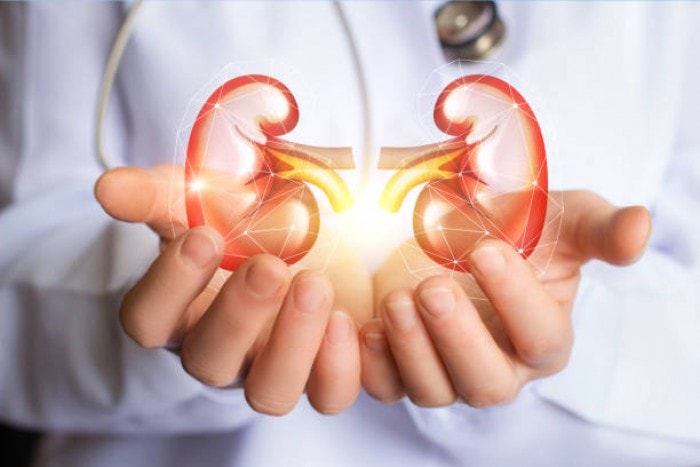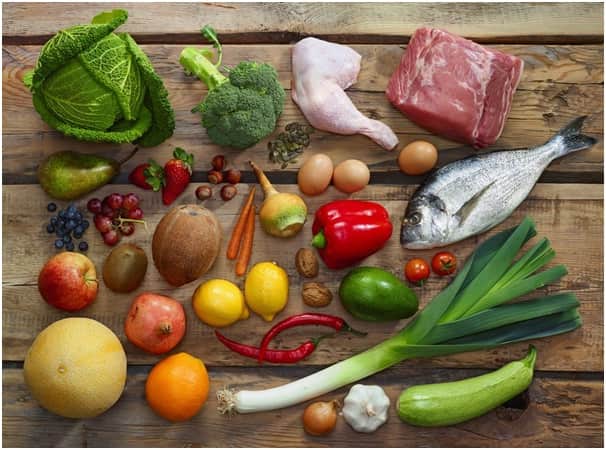
Kidneys have a significant function in our body, which is removing waste and extra water in the form of urine. Kidneys also help maintain a balance of the salts and minerals such as calcium, phosphorous, sodium, and potassium that circulate in the blood. Kidneys also help to release hormones that help create active red blood cells, regulate blood pressure, and keep the bones stronger.
As the kidney disease progresses, you should make necessary changes to your diet to balance the levels of electrolytes, minerals, and fluid in the body. Renal dieticians provide a diet chart to every patient suffering from kidney disease after considering body mass index (BMI), electrolyte balance, and dietary requirement for protein, fats, carbohydrates, calcium, phosphate, and vitamin D. Since every patient has different dietary requirement, it is important to take a proper guidance of a renal dietician.
- What happens in a kidney disease?
After consumption of foods and drinks, our bodies extract the nutrients and turn the rest into waste products, and excrete through urine. When kidneys do not function properly, these waste products start building up in your blood. Phosphorous and potassium containing salts can rise to dangerous levels in the blood leading to heart and bone problems, low red blood cell count (RBC) as production of erythropoietin is reduced. After months or years, kidney disease can cause permanent kidney failure. In such cases, dialysis and kidney transplant are the only available options.
- Why is an eating plan important?
Your drinking and eating plan affect your health drastically. Eating a balanced diet which is low in salt and fat can help you control your blood pressure. If you have diabetes, controlling your blood sugar is important too. High blood pressure and diabetes are the most common reason for kidney failures and you need a kidney-friendly diet to protect your kidneys from further damage occurring.
- How is a kidney-friendly diet different?
With the kidney-friendly diet, you need to track how much of nutrients you are taking in. To make sure you are in taking the right amounts of these nutrients, you need to manage your portion sizes. You can get the required information on the “Nutrition Facts” label of each and every product that you are consuming.

- Calories: Your body gets energy from the calories you intake. Calories come from the nutrients in your diet. How much of calories you need depends on your weight, age, gender, body size and activity level.
- Protein: Protein is the building blocks of your body and is essentially needed to grow, heal and stay healthy. Your protein consumption depends on your body size, activity level and health concerns. People with kidney disease must limit protein as increase in protein levels make kidneys work harder and cause more damage. Ask your doctor about the right amount of protein and their sources. Low protein foods include bread, fruits, vegetables and pasta. High protein foods are red meat, fish and eggs which are often not advised to consume on a regular basis.
- Fat: Fat gives you energy and helps you utilise the vitamins in your food. But too much fat can lead to weight gain and several cardiovascular diseases. To limit fat in your meal plan, choose healthy fats or unsaturated fat present in olive oil, peanut oil and corn oil. It can even help you reduce cholesterol. Saturated fat or the bad fat can raise your cholesterol level. Avoid foods with saturated fat like butter, lard, meats and skin of chicken and turkey. You should also avoid trans fat as it raises levels of “bad” (LDL) cholesterol and lowers the level of “good” (HDL) cholesterol which leads to critical health complications.
- Carbohydrates: Carbohydrates are the easiest source of energy but you need to limit its use depending on your stage of kidney disease and blood sugar levels. Healthy sources of carbohydrates are fruits and vegetables while unhealthy sources include sugar, honey, hard candies, soft drinks and other sugary drinks. Some carbohydrates are high in potassium and phosphorus and you need to avoid those at all costs.
- Sodium: Sodium is a mineral found in almost every food but too much of it can make you thirsty, raise your blood pressure and damage your kidneys. To limit sodium intake avoid canned soups, pickles and processed meat. Do not add salt while cooking and avoid adding sauces as they contain added salts. While choosing sodium substituted salts, make sure that they are not high in potassium.
- Portions: Another aspect of kidney friendly diet is regulating portions of food. To help control your portions, you can do the following:
- Check the nutrition facts on every food label to determine the amount of food in one serving.
- Take time to eat, and stop eating when you are feeling too full.
- Avoid eating while doing something else as this can distract you and you may not realize how much you have eaten.
- Take out one serving of food from the box and put it away instead of eating directly from the box.
- Foods Every Kidney Patient Must Include In Their Diet
- DASH technique: DASH stands for Dietary Approaches to Stop Hypertension. This type of diet is rich in fruits, vegetables, low-fat dairy products, whole grains and is low in salt and sodium, sugars and sweets, fats and red meat.
- Foods low in sodium: In a kidney disease, rise in sodium levels can lead to swollen ankles, high blood pressure, shortness of breath, and fluid build-up. Eat low sodium foods like spices and herbs in place of salt, freshly cooked meat, plain rice without sauce, homemade soup and unsalted popcorns.
- Low potassium foods: Potassium is important for muscles and nerves relaxation. In case of kidney problems, your body cannot excrete excess potassium. Hence eat fresh foods that contain low levels of potassium like apple, cranberry juice, strawberries, blueberries, plums, pineapples, onions, white rice, and boiled cauliflower.
- Balanced protein intake: Renal dieticians advise people with kidney disease to limit the amount of protein intake. Eggs, pulses, cheese, and milk products are rich in protein and need to be taken in regulated amount. Too much protein can result in high levels of urea in the blood and fasten the kidney damage.
- Foods healthy for the heart: Always prevent fat from lining up the blood vessels, heart, and kidneys. Try eating low fat foods like grilled, boiled, roasted meat, lean cuts, beans, vegetables and fat-free milk products.
Apart from the above dietary regulations, some foods that prevent the advancement of kidney disease are:
- Capsicum
- Ginger
- Onions
- Carrots
- Blueberries
- Egg whites
Conclusion
It is important to discuss your renal diet with your health care professional to ensure you are following the best diet. Dietary limitations also depend on the level of kidney damage, medical and dialysis treatment. It is never too late to make positive changes to ensure health and well being which will be essential for your future.
Author’s Bio:

Mila Jones is a Senior Business Consultant, with rich experience in the domains of technology consulting and strategy, she works with both established technology brands and market entrants to offer research inputs and insights on leveraging technology as a source of strategic competitive advantage. She is a prolific author and shares her expertise with tech enthusiasts on popular digital publishing platforms. She loves not only to write about several topics but also loves to explore new ideas about Lifestyle, Travel blogs and many more.
